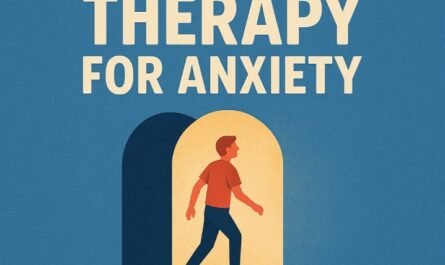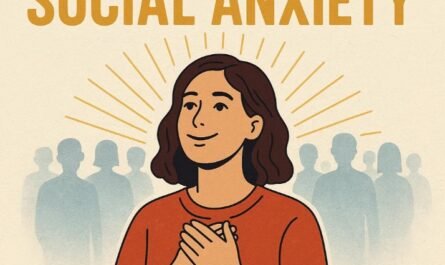The human experience is diverse and intricate, woven together with moments of joy, love, sadness, and, unfortunately, pain. Just as physical pain alerts us to potential damage to our body, emotional pain signals disturbances in our mental and emotional well-being. When we talk about being “in emotional pain,” we’re addressing a profound sense of distress that goes beyond fleeting sadness or disappointment. It often manifests physically, anchoring in various parts of our body, from the chest to the throat, making the experience even more visceral.
What is Emotional Pain?
Emotional pain is a non-physical suffering often stemming from events, memories, or thoughts that cause sadness, grief, anxiety, or disappointment. Unlike physical pain, it lacks tangible evidence but can be equally, if not more, agonizing. This pain can arise from various sources, including traumas, heartbreaks, losses, or deep-seated fears. Understanding and recognizing emotional pain is the first step towards healing. However, just as dealing with the loss of a loved one can be challenging, navigating emotional pain requires resilience, support, and often professional guidance.
How Emotional Pain Manifests in the Body
The feeling of emotional pain in the chest or emotional pain in the throat isn’t just a poetic expression; it’s rooted in our physiology. When you’re stressed or upset, your body releases stress hormones, which can cause physical symptoms. The heaviness or tightness in the chest, often described as heartbreak pain in the chest, can be likened to a physical reaction to emotional distress. This sensation, sometimes known as feeling sadness in your chest, is a testament to the profound connection between the mind and body. Similarly, emotional pain may manifest as a lump in the throat, a tightness in the stomach, or even an unexplained pain in the wrists.
Top 10 Frequently Asked Questions about Emotional Pain
- Why do we feel emotional pain in specific parts of the body like the chest or throat?
- Can emotional pain cause long-term physical health issues?
- How can one differentiate between emotional pain and a medical condition?
- Are there any coping mechanisms to alleviate emotional pain?
- How does emotional pain impact our daily life and relationships?
- What’s the correlation between emotional pain and mental health disorders?
- Is it normal to feel physical pain, such as in the wrists or stomach, due to emotional reasons?
- How long does emotional pain last, and when should one seek professional help?
- Can medications help in dealing with emotional pain?
- Is it possible to completely heal from emotional pain?
Why do we feel emotional pain in specific parts of the body like the chest or throat?
Our brains are wired to respond to emotional stimuli similarly to physical threats. The amygdala, the brain’s emotional center, activates a response that releases stress hormones like cortisol. These hormones prepare the body for a “fight or flight” reaction, resulting in various physical sensations. The heart may race, leading to heartbreak pain in the chest. You may feel choked up with emotion, manifesting as emotional pain in the throat.
Just as our brain associates happiness with a warm, fluttery feeling in the stomach, it correlates sadness or anxiety with heaviness in the chest or throat. Over time, these associations become deeply ingrained. The body’s reactions to emotional pain aren’t arbitrary but are learned responses from past experiences and evolutionary processes.
Additionally, memories linked to emotional traumas may reside in specific body parts. Someone who experienced betrayal might feel it as a stab in the back, while heartbreak truly feels like a pain in the heart. The interconnectedness of the mind and body ensures that emotional pain doesn’t just remain a mental concept but becomes a tangible, physical experience.
Can emotional pain cause long-term physical health issues?
Chronic emotional pain, if not addressed, can indeed lead to long-term physical health problems. Persistent stress or emotional distress can cause an overproduction of stress hormones, primarily cortisol. High cortisol levels over extended periods can lead to conditions like hypertension, diabetes, and even cardiovascular diseases.
Moreover, people in chronic emotional pain often adopt unhealthy coping mechanisms. Overeating or under-eating, substance abuse, and neglecting physical well-being are common responses. Such behaviors can lead to obesity, malnutrition, addictions, and a compromised immune system.
Another crucial aspect is the emotional pain in the body, such as the stomach or wrists. Chronic stress can lead to digestive issues, ulcers, and irritable bowel syndrome. Similarly, unexplained aches and pains in various body parts, including the wrists, can arise from unresolved emotional traumas. The body tends to “store” emotional pain, leading to muscle tension, headaches, and chronic fatigue.
Lastly, emotional pain can disrupt sleep patterns, leading to insomnia or other sleep disorders. Sleep is vital for physical health, and its deprivation can result in a slew of health issues, from weight gain to a weakened immune system.
How can one differentiate between emotional pain and a medical condition?
Distinguishing between emotional pain and an underlying medical condition can be challenging since both can manifest with similar symptoms. For instance, the sensation of emotional pain in the chest might mimic symptoms of cardiac issues. Likewise, emotional pain in the throat could be confused with a medical condition like thyroid dysfunction or an infection.
A key differentiator is the context. If the physical symptoms arise during or after a significant emotional event, such as a breakup or traumatic incident, it’s more likely to be related to emotional pain. The physical manifestations of emotional pain, while intense, often lack other markers of the suspected medical condition. For instance, while heartbreak might cause a heavy feeling in the chest, it won’t be accompanied by other cardiac arrest symptoms like radiating pain to the arm or jaw.
Nevertheless, it’s essential never to dismiss any symptom. If you’re uncertain, it’s always a good idea to seek medical advice. Undergoing medical tests can either confirm a medical condition or rule it out, providing peace of mind.
Are there any coping mechanisms to alleviate emotional pain?
Coping with emotional pain varies from person to person. What works for one might not work for another. Here are some general strategies that can help:
- Acceptance: Before trying to deal with emotional pain, accepting its presence is crucial. Denying or suppressing it can lead to prolonged suffering.
- Express Yourself: Talking to someone you trust, journaling, or indulging in creative activities can be therapeutic.
- Physical Activity: Exercise releases endorphins, which are natural painkillers. Activities like yoga or tai chi can also help in grounding and centering oneself.
- Mindfulness and Meditation: Engaging in mindfulness practices can help in anchoring oneself to the present moment, alleviating the intensity of emotional pain.
- Seek Professional Help: If emotional pain becomes unmanageable, seeking therapy or counseling can be beneficial. Professionals can provide tools and strategies tailored to individual needs.
- Limit Stress: If possible, reduce additional sources of stress. Engage in relaxation techniques like deep breathing exercises or progressive muscle relaxation.
- Avoid Negative Coping Mechanisms: Avoid resorting to alcohol, drugs, or other harmful behaviors. They offer only temporary relief and can exacerbate the situation.
- Join Support Groups: Sharing experiences with others going through similar situations can provide solace and understanding.
- Establish a Routine: Keeping a daily routine can bring a sense of normalcy during turbulent times.
- Stay Connected: Maintain connections with loved ones, even if it’s just a brief check-in.
How does emotional pain impact our daily life and relationships?
Emotional pain can have a profound impact on daily functioning and interpersonal relationships. It can manifest as fatigue, making routine tasks seem daunting. Concentration levels might drop, affecting performance at work or school. People in emotional pain might withdraw from social situations, leading to feelings of isolation. They might become irritable, snapping at loved ones for no apparent reason.
Relationships can bear the brunt of emotional pain. A person might become overly dependent, seeking constant reassurance, or might go the other way, becoming distant and closed off. Emotional pain can lead to trust issues, especially if it stemmed from betrayals or letdowns. It might result in self-esteem issues, making one feel unworthy of love or happiness.
However, emotional pain can also offer an opportunity for growth. Experiencing and overcoming such pain can lead to increased empathy, resilience, and a deeper understanding of oneself.
What’s the correlation between emotional pain and mental health disorders?
Emotional pain and mental health disorders often intersect. Prolonged emotional pain can lead to conditions like depression, anxiety, post-traumatic stress disorder (PTSD), and even substance abuse disorders. On the other hand, individuals with pre-existing mental health disorders might be more susceptible to emotional pain, given their heightened emotional sensitivity.
The brain structures involved in processing emotional pain, like the amygdala, anterior cingulate cortex, and the prefrontal cortex, also play roles in various mental health disorders. For instance, hyperactivity in the amygdala is associated with both emotional pain and anxiety disorders.
It’s crucial to understand this interplay because treating one without addressing the other can lead to incomplete healing. For instance, medicating for depression might alleviate some symptoms but won’t address the root emotional pain, leading to potential relapses.
Is it normal to feel physical pain, such as in the wrists or stomach, due to emotional reasons?
Yes, it’s entirely normal for emotional pain to manifest physically. The phenomenon, known as psychosomatic symptoms or somatization, is when emotional or psychological factors lead to physical symptoms. The term “psychosomatic” stems from the Greek words “psyche” (mind) and “soma” (body), indicating the interconnectedness of the two.
Physical manifestations, like emotional pain in wrists or emotional pain in the stomach, aren’t merely “in the head.” They’re real sensations arising due to the body’s response to emotional distress. For instance, chronic stress can lead to increased stomach acid production, causing genuine discomfort or pain.
However, one should never dismiss these symptoms, especially if they persist. It’s essential to rule out any underlying medical conditions. Once medical reasons are ruled out, addressing the emotional root becomes pivotal.
How long does emotional pain last, and when should one seek professional help?
The duration of emotional pain varies greatly, depending on its cause, individual resilience, support systems, and coping mechanisms. Some might bounce back after a few days, while others might grapple with it for months or even years.
However, if emotional pain leads to disruption in daily functioning, withdrawal from social situations, a constant feeling of hopelessness, and especially if one harbors thoughts of self-harm or suicide, it’s crucial to seek professional help immediately.
Can medications help in dealing with emotional pain?
Medications, primarily antidepressants or anti-anxiety drugs, can alleviate some symptoms of emotional pain, especially if it’s intertwined with a mental health disorder. However, medication alone is often not a comprehensive solution. It’s most effective when combined with therapy or counseling, which addresses the root cause of the emotional pain.
It’s essential to approach medications with caution. Consulting a psychiatrist or a primary care physician is crucial. They can provide guidance on the benefits, potential side effects, and the duration for which the medication might be needed.
Is it possible to completely heal from emotional pain?
Healing from emotional pain is indeed possible, but the journey is individual. For some, healing might mean complete freedom from pain, while for others, it might mean learning to live with it without letting it dominate their lives. Time, support, self-awareness, professional guidance, and healthy coping mechanisms are all crucial elements in the healing process.
Emotional pain, while challenging, can also be an avenue for growth. It can lead to a deeper understanding of oneself, enhanced empathy for others, and a renewed appreciation for the joys of life.
Summary Table:
Keyword | Explanation / Relevance |
|---|---|
In Emotional Pain | Refers to non-physical suffering often stemming from events or memories causing sadness, grief, or disappointment. |
Emotional Pain in Chest | A manifestation of emotional distress felt as heaviness or tightness in the chest, akin to heartbreak. |
Heartbreak Pain in Chest | A specific kind of emotional pain associated with loss or betrayal felt physically in the chest. |
Emotional Pain in Throat | Often results from suppressed emotions or the feeling of being “choked up” with intense feelings. |
Emotional Pain in the Body | Refers to physical symptoms stemming from emotional distress, like pain in the wrists or stomach. |
I am in So Much Emotional Pain | Expresses the intensity and overwhelming nature of emotional distress. |
Feeling Sadness in Your Chest | Describes the physical sensation often associated with profound sadness or grief. |


